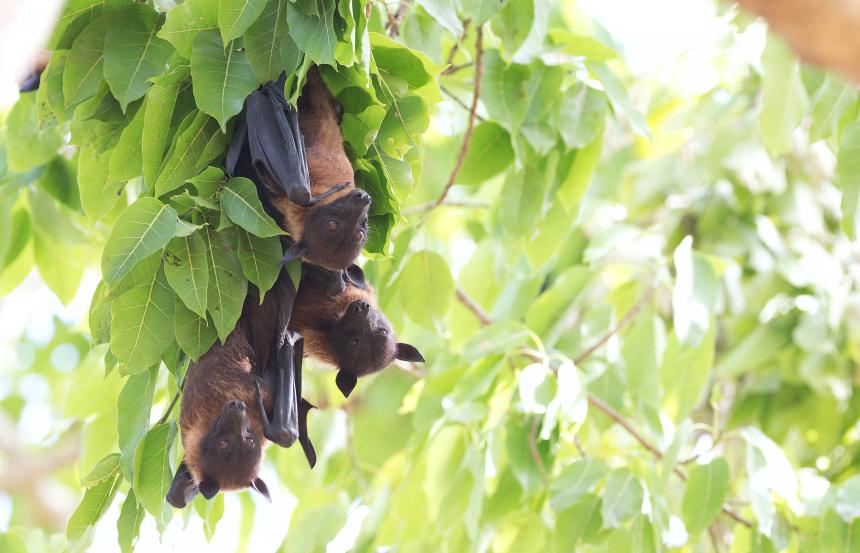In the News

Video
November 08, 2023
Enjoy these beautiful wild elephants in Chobe National Park, Botswana - part of the KAZA (Kavango Zambezi) Transfrontier Conservation Area - where we're working to restore key wildlife migration corridors.

November 07, 2023
Cornell alumnus Bill Konstant ‘74 visited Cornell to give a talk to students, alumni, faculty, and the general public based on his memoir, Wrestles with Wolves: Saving the World One Species at a Time, hosted by the Cornell Wildlife Health Center and the Zoo and Wildlife Society.

Video
October 23, 2023
In this eCornell webinar, Dr. Steve Osofsky, Dr. Krysten Schuler, and Dr. Jennifer Bloodgood of the Cornell Wildlife Health Center at the Cornell College of Veterinary Medicine share their experiences from the field and the lab to illustrate how the health of wildlife and our own health are inextricably linked.

Video
October 03, 2023
Enjoy these beautiful wild elephants in Chobe National Park, Botswana - part of the KAZA (Kavango Zambezi) Transfrontier Conservation Area - where we're working to restore key wildlife migration corridors.

September 16, 2023
The COVID-19 pandemic can be traced back to a bat virus. Indeed, bats are known reservoirs for many dangerous viruses that can spill over to humans. To help prevent the next pandemic, Cornell’s Dr. Steve Osofsky and WCS’s Dr. Sue Lieberman argue that humanity must leave bats and their habitats undisturbed.

Announcement
September 12, 2023
We're excited to welcome Maggie Swift as a Cornell Atkinson Postdoctoral Fellow, who will use advanced computer modeling to simulate elephant movements in southern Africa that will make it easier to evaluate scenarios for integrative, sustainable land-use management.

August 23, 2023
Working with primates is something I had avoided for a while. Most of my interest has been in southern Africa, with ungulates like giraffes, antelope, and pachyderms being my main focus. Yet I felt that, following the COVID-19 pandemic, learning more about wild primate health would be vital....

August 18, 2023
The American Veterinary Epidemiology Society announced 10 new honorary diplomats during the annual meeting of the American Veterinary Medical Association this year, including Cornell's Dr. Steve Osofsky, DVM ’89.

June 16, 2023
Experts from the Cornell Wildlife Health Center and the Wildlife Conservation Society have partnered on a new analysis focused on how pandemics can be prevented in the future. One basic solution may lie in a global taboo against harming/disturbing bats and their habitats.

For Your Information
June 05, 2023
In this new paper led by Cornell, researchers conclude that a global taboo is needed whereby humanity agrees to leave bats alone, let them have the habitats they need, and live undisturbed by humans to reduce the risk of another pandemic.
